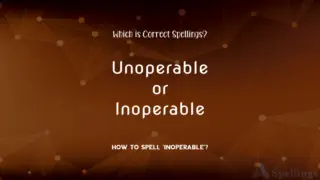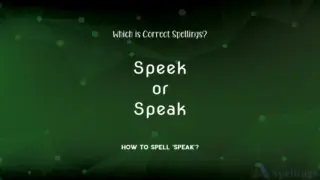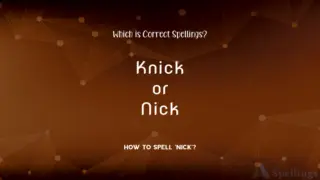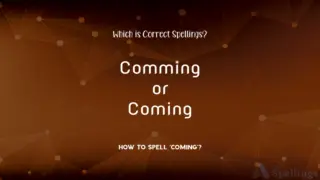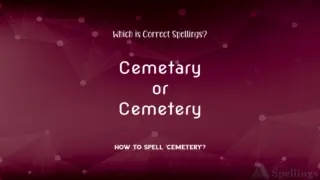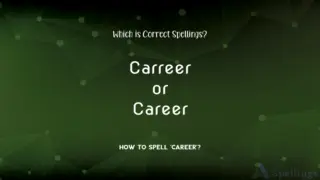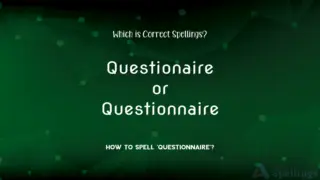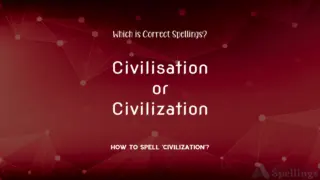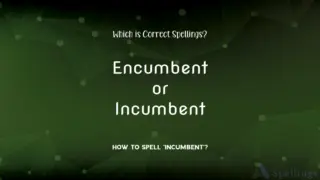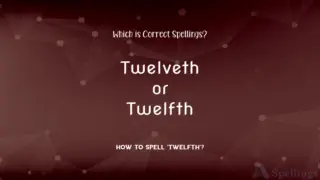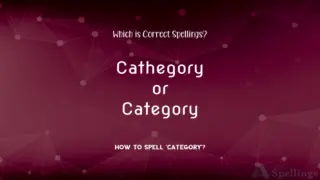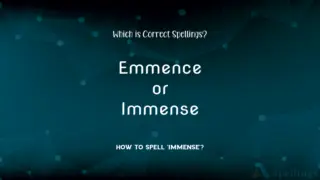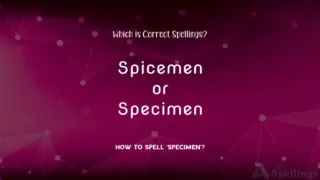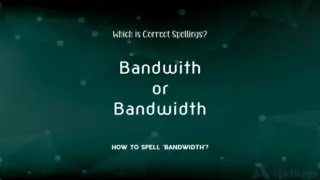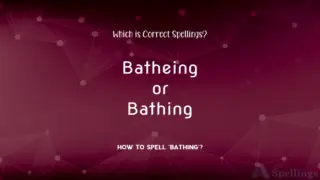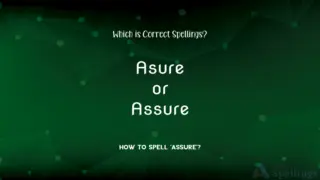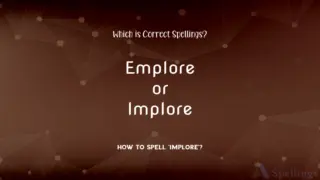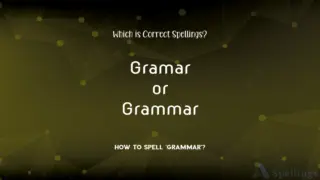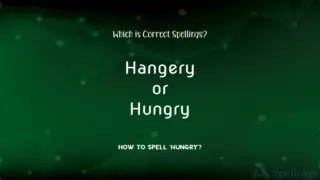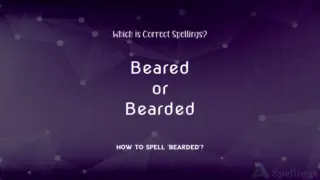Reffering or Referring: Which is Correct Spellings?
The incorrect spelling is "reffering," while the correct spelling is "referring." "Referring" means to mention or allude to something, or direct someone to a source for information.
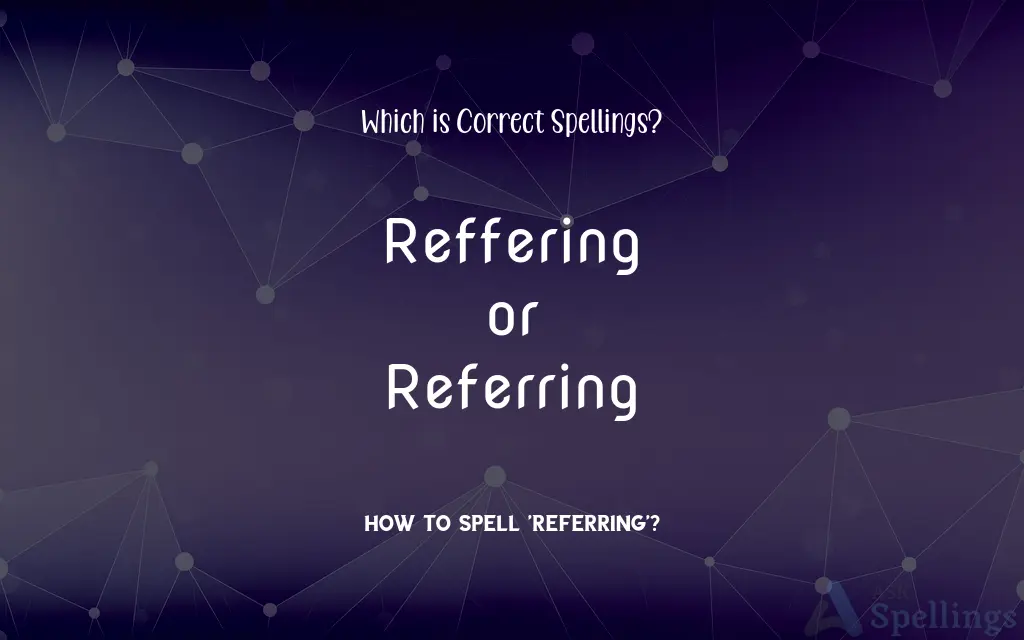
Which is correct: Reffering or Referring
How to spell Referring?

Reffering
Reffering Spelling

Referring
Referring Spelling
Table of Contents
Is it Reffering or Referring
Visual Cue: Visualize "referring" as 'refer' plus 'ing'.
Single 'F': Note that "referring" contains only one 'f'.
Double 'R' After 'E': Remember that "referring" has double 'r' after 'e'.
Sound it Out: Pronounce it as "re-ferr-ing" to emphasize the double 'r'.
Word Breakdown: Break it down to 're' + 'fer' + 'ing', focusing on the single 'f' and double 'r'.
How Do You Spell Referring Correctly?
Incorrect: Are you reffering to the incident yesterday?
Correct: Are you referring to the incident yesterday?
Incorrect: She kept reffering to her notes during the speech.
Correct: She kept referring to her notes during the speech.
Incorrect: I was reffering to the book you mentioned.
Correct: I was referring to the book you mentioned.
Incorrect: What are you reffering to in your report?
Correct: What are you referring to in your report?
Incorrect: He was reffering to a different matter altogether.
Correct: He was referring to a different matter altogether.
Referring Definitions
Mentioning Something: To mention or allude to.
When speaking, she was referring to a well-known study.
Indicating or Denoting: Indicating or denoting a particular thing.
The term 'IT' is referring to Information Technology.
Relating to a Subject: Relating or pertaining to a subject.
The comments were referring to the recent changes.
Consulting a Source: To look at or check something for information.
She's referring to her notes before answering.
Directing to a Source: To direct someone to a source of information.
The teacher is referring students to the library for research.
Referring Meaning in a Sentence
He was referring to the guidelines in the manual.
She is referring to a famous artist in her talk.
The map is referring to historical sites in the city.
The article was referring to recent scientific discoveries.
Are you referring to the event last week?
The doctor was referring to a specific medical condition.
When referring to the rules, always be accurate.
He kept referring to his experiences during the trip.
She kept referring back to her favorite book.
The professor was referring to an important concept.
When referring to this era, historians use specific terms.
In this chapter, the author is referring to ancient cultures.
They were referring to the achievements of the team.
When referring to this law, one must be careful.
The term is referring to a specific kind of technology.
Are you referring to the same person I know?
She's referring to the notes she took in class.
The speaker was referring to a historical event.
The teacher is referring students to additional resources.
The instructions are referring to safety procedures.
In her essay, she's referring to various authors.
The brochure is referring to different tourist attractions.
In his speech, he was referring to environmental issues.
Are you referring to the results of the experiment?
The guide was referring to a landmark in the city.
He was referring to a well-known local legend.
In this context, 'revolution' is referring to a change.
She's referring to the schedule for the day.
When referring to the diagram, be precise.
In the meeting, they were referring to the company's goals.
Referring Idioms & Phrases
Referring back to
Looking back at or mentioning something previously discussed or mentioned.
Referring back to your earlier point, I agree that we need a new strategy.
Worth referring to
Deserving to be mentioned or used as a reference.
This book is worth referring to for its detailed historical analysis.
Without referring to notes
Speaking or presenting without looking at written reminders or cues.
She gave the entire lecture without referring to notes.
Referring to the matter at hand
Directing attention or discussion to the current topic or issue.
Let's stay focused by referring to the matter at hand.
Referring to oneself
Mentioning or talking about oneself.
In his autobiography, he avoids referring to himself too much.
Referring to the experts
Seeking information or opinions from people with specialized knowledge.
For more detailed information, we are referring to the experts.
Referring to past experience
Mentioning or drawing on one's previous experiences.
Referring to past experience, he advised caution in the project.
Keep referring to
Continuously mentioning or going back to a particular subject or idea.
He keeps referring to his previous experience to emphasize his point.
Referring to the source
Looking back at or citing the original place where information was found.
For an accurate interpretation, we should be referring to the source text.
Referring to a dictionary
Consulting a dictionary for the meaning, spelling, or usage of words.
When in doubt about a word, I suggest referring to a dictionary.
Referring to historical events
Mentioning or relating to events from the past.
His speech was powerful, referring to historical events to illustrate his points.
Referring to the contract
Looking at or mentioning the terms and conditions of an agreement.
When discussing the breach, she kept referring to the contract.
Frequently referring
Often mentioning or making references.
The author is frequently referring to classical literature in her writing.
Not referring to anyone in particular
Making a statement that is not aimed at any specific individual.
I'm not referring to anyone in particular when I mention these errors.
Directly referring to
Explicitly mentioning or alluding to something or someone.
The comments were directly referring to the recent policy changes.
Referring to the agenda
Looking at or mentioning the list of items to be discussed in a meeting.
Referring to the agenda, let's discuss the next item.
Referring to statistics
Citing or mentioning numerical data or figures.
In her argument, she kept referring to statistics to back up her points.
Referring to the guidelines
Looking at or mentioning the set rules or instructions.
Please ensure compliance by referring to the guidelines.
Referring to a professional
Seeking advice or help from someone with expertise in a specific field.
For legal matters, we are referring to a professional.
Referring to the manual
Looking at or citing a handbook or guide.
If you're unsure how to operate the machine, start by referring to the manual.
Common Curiosities
How many syllables are in referring?
Referring has three syllables.
How do we divide referring into syllables?
Referring is divided into syllables as re-fer-ring.
What is the pronunciation of referring?
Referring is pronounced as /rɪˈfɜːr.ɪŋ/.
What is a stressed syllable in referring?
The stressed syllable in referring is the second syllable: fer.
Is referring a collective noun?
No, referring is not a collective noun.
What is the verb form of referring?
Referring itself is a verb form (present participle) of the verb "refer."
Is referring a negative or positive word?
Referring is neutral; it is neither inherently negative nor positive.
Is referring a vowel or consonant?
Referring is neither a vowel nor a consonant; it is a word composed of both.
Is referring a noun or adjective?
Referring is a verb form (gerund or present participle) and can function as a noun or an adjective in a sentence.
Is referring an adverb?
No, referring is not an adverb.
Is referring a countable noun?
Referring, when used as a gerund, is not typically counted.
Which vowel is used before referring?
There is no specific vowel rule for the word preceding referring; it depends on the context.
Is the referring term a metaphor?
Referring can be used metaphorically in certain contexts.
Is the word “referring” a Direct object or an Indirect object?
Referring can function as either a direct object or an indirect object when used as a gerund.
What part of speech is referring?
Referring is a verb form and can function as a gerund or present participle.
Which determiner is used with referring?
Determiners are used with referring when it functions as a gerund, such as "the referring."
What is the root word of referring?
The root word of referring is "refer."
Is referring an abstract noun?
When used as a noun (gerund), referring can be considered abstract.
What is another term for referring?
Another term for referring could be "alluding" or "mentioning."
What is the singular form of referring?
Referring does not have a singular or plural form as it is a verb form.
Is the word referring imperative?
No, referring is not an imperative; it's a verb form.
Is the word referring Gerund?
Yes, referring can function as a gerund.
Which conjunction is used with referring?
Conjunctions like "and" or "but" can be used in sentences that include referring.
Which article is used with referring?
Articles like "the" can be used with referring when it functions as a gerund.
Why is it called referring?
It is called referring, derived from the verb "refer," meaning to direct attention to or mention something.
How is referring used in a sentence?
Example: "She is referring to the guidelines mentioned in the book."
What is the opposite of referring?
The opposite of referring could be "ignoring" or "overlooking."
What is the plural form of referring?
As a verb form, referring does not have a plural form.
Which preposition is used with referring?
Prepositions like "to" are commonly used with referring, e.g., "referring to the article."
Share Your Discovery

Previous Spelling
Basicly or Basically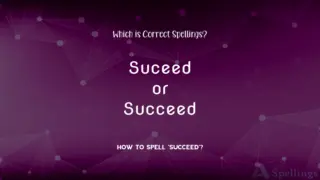
Next Spelling
Suceed or Succeed
